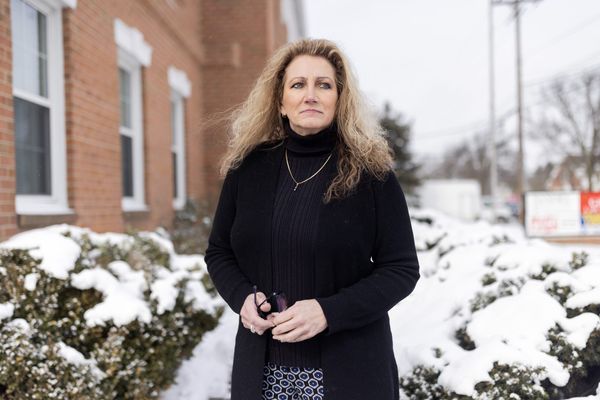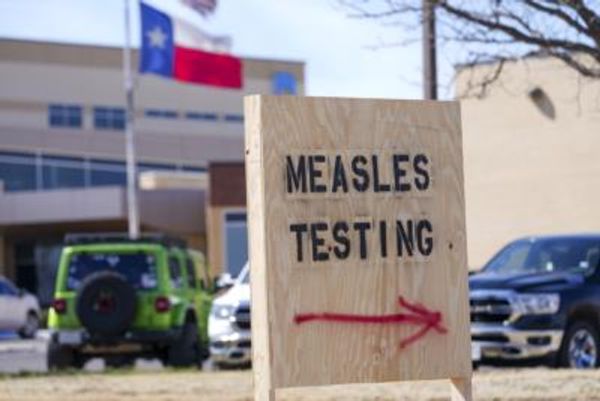My fifth time going through a fertility surgery was when it hit me that I might never have children. I was 39, and each cycle was the same: unsuccessful. My eggs — which I was told were both low quality and quantity — never even made it to the stage where they could be implanted back into me as the beginning of life.
I’d wanted children for years, less as a concrete goal than as a theoretical desire, something that I thought would happen once I found a partner I loved and managed my career. I found that partner, and we ultimately decided to go off birth control. And we waited. I took supplements, cut out red meat and urinated on ovulation sticks. Nothing happened.
Yet we were lucky; we had enough disposable income to try to have children through fertility treatments, something too many others can’t afford. And because of the racial wealth gap, this often means that those who cannot take this path are Asian, Black and Latinx — yet another manifestation of embedding inequalities into future generations. We can do better by requiring that insurance companies cover fertility treatments as part of regular coverage.
The right to end pregnancy, which should be a fundamental human right, is under attack. Far less discussed is the right to begin pregnancy and what to do about the multitudes of women who want to conceive but cannot, who cannot afford to pay for expensive fertility procedures that virtually no insurance covers. Infertility is ubiquitous: One in five women between the ages of 15 and 49 is infertile. For women over 35, this jumps to 1 in 3 women. This is roughly the same number of women who will have an abortion at some time during their lifetime (1 in 4).
Yet, the cost of fertility services is out of reach for most American families, whose median income is just over $70,000. The average cost of an in vitro fertilization (IVF) cycle is $15,000 to $30,000. And the majority of individuals accessing fertility services are white, highly educated and have income levels above $100,000. It turns out I am exactly average, in this way: I have a graduate degree, am partially white, and I have a high enough income to pay for treatments. I am blessed, even if unsuccessful.
The situation is worse for families of color. The average Black family has just $24,000 of wealth versus $189,000 of the average white family, or 13%. That means the average Black family cannot even afford one IVF procedure, let alone the multiple procedures that may be needed to have a child. And research shows there are even further challenges: Black women reported having to travel twice as far for treatment and that race and income were barriers to getting treatment. Additionally, Asian Americans have a higher rate of infertility and have cited higher cultural barriers to finding access to care or seeking treatment.
And trends are getting worse: Birthrates in the U.S. have fallen for seven straight years, resulting in the slowest growth of the population since the 1930s. The median age for women giving birth is now the highest on record at 30 years old. Surveyed women have given the cost of housing and child care, student debt and the desire to prioritize a career as reasons for delaying having babies.
Studies also have shown that fertility rates may be falling because of challenges beyond our control or even awareness: increasing environmental toxins, including common chemicals like BPA; household cleaning products and chlorinated water have been shown to negatively impact female fertility. Environmental degradation also impacts the fertility of men, with exposure to air pollution and toxins among the many reasons that male fertility may be declining. Even the Western diet may be responsible.
Given all this data — which can only be expected to worsen considering our collective slow action to address environmental challenges, housing and economic insecurity, and more — we need to act to change the declining birthrate now. Our system today is one that has created optional procedures for the wealthy and enables those that have more money to be able to plan families while the rest of society cannot. This will exacerbate racial disparities for generations to come and sends the message that only certain people are worthy of having children. We can, and should, push for health insurance to cover all families who want to build families. The future of a balanced and thriving America depends on it.
____
ABOUT THE WRITER
Jeanette Quick is an attorney and a board member of the Asian & Pacific Islander American Health Forum (APIAHF). Opinions expressed are those of the author and do not express the views or opinions of any organization with whom the author is affiliated.







